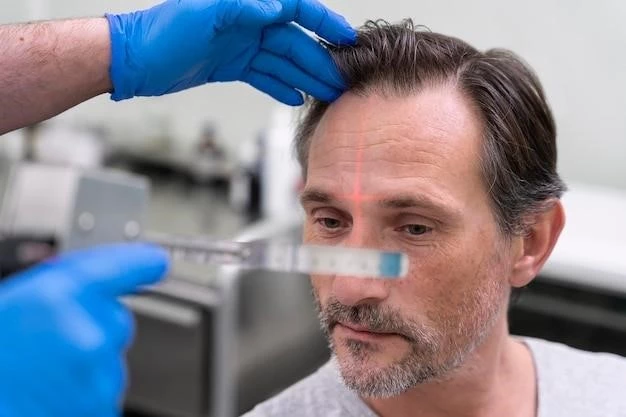Follicular Lymphoma
Introduction to Follicular Lymphoma
Follicular lymphoma is a type of cancer that affects the lymphatic system, which is part of the body’s immune system. It specifically targets B-cells, a type of white blood cell. The cancer typically arises from the follicular center cells in lymph nodes.
Patients diagnosed with follicular lymphoma may undergo various treatment options such as chemotherapy, radiation therapy, immunotherapy, biologic therapy, stem cell transplant, monoclonal antibody therapy, and targeted therapy.
While follicular lymphoma is considered an indolent cancer due to its slow-growing nature, it can still cause symptoms like swelling of lymph nodes, fatigue, and fever. Understanding the disease’s prognosis, genetic mutations, and potential relapse is crucial in developing an effective treatment plan.
Treatment Options for Follicular Lymphoma
Treatment for follicular lymphoma depends on several factors, including the stage of the disease, the individual’s overall health, and their preferences. Common therapies include chemotherapy, radiation therapy, immunotherapy, biologic therapy, stem cell transplant, monoclonal antibody therapy, and targeted therapy.
Chemotherapy uses drugs to kill cancer cells throughout the body, while radiation therapy targets specific areas with high-energy rays. Immunotherapy boosts the immune system’s ability to fight cancer, and biologic therapy uses the body’s natural ability to target cancer cells.
A stem cell transplant may be an option for some patients, replacing unhealthy blood-forming cells with healthy ones. Monoclonal antibody therapy involves using antibodies to target specific proteins on cancer cells. Targeted therapy focuses on specific genes, proteins, or the tissue environment that contributes to cancer growth.
Combining different treatment modalities or participating in clinical trials may offer patients with follicular lymphoma more personalized and effective treatment options.
Side Effects of Treatment
Treatment for follicular lymphoma, such as chemotherapy, radiation therapy, and immunotherapy, can lead to various side effects. Common side effects of chemotherapy may include hair loss, nausea, fatigue, and increased risk of infections due to lowered white blood cell count.
Radiation therapy may cause skin changes in the treated area, fatigue, and issues swallowing. Immunotherapy can trigger immune-related side effects like skin rashes and diarrhea. Biologic therapy may result in flu-like symptoms, such as fever, chills, and muscle aches.
Stem cell transplant, monoclonal antibody therapy, and targeted therapy may also have specific side effects. It is essential for patients to discuss potential side effects with their healthcare team to manage them effectively and maintain the best possible quality of life during treatment.
Prognosis and Survival Rates
The prognosis for follicular lymphoma varies depending on the stage at diagnosis, the patient’s overall health, and response to treatment. While it is considered an indolent cancer, meaning it grows slowly, it can sometimes relapse.
The 5-year survival rate for follicular lymphoma is around 75% to 90%, and the 10-year survival rate is approximately 50% to 70%. Factors that may influence prognosis include age, extent of the disease, genetic mutations, and response to therapy.
Regular follow-ups with healthcare providers are crucial to monitor for any signs of relapse or progression of the disease. Despite the potential for relapse, many patients with follicular lymphoma can live long, fulfilling lives with proper management and treatment.
Genetic Mutations and Their Role
Genetic mutations play a significant role in the development and progression of follicular lymphoma. One of the most common mutations associated with this cancer is the translocation between chromosomes 14 and 18, known as the t(14;18) translocation.
This translocation leads to the overexpression of the BCL2 gene, which inhibits cell death and promotes the survival of lymphoma cells. Other genetic mutations, such as alterations in genes like EZH2 and TNFRSF14, may also impact the behavior of follicular lymphoma.
Understanding these genetic mutations is essential for determining prognosis, guiding treatment decisions, and developing targeted therapies that can specifically address the genetic alterations driving the cancer’s growth. Research into genetic mutations continues to provide valuable insights into the biology of follicular lymphoma and potential treatment approaches.

Conclusion
In conclusion, follicular lymphoma is a type of cancer that affects the lymphatic system and arises from B-cells in the lymph nodes. Treatment options, including chemotherapy, radiation therapy, immunotherapy, stem cell transplant, and targeted therapies, aim to manage the disease and improve outcomes.
Despite its indolent nature, follicular lymphoma can have significant impacts on patients’ lives. Understanding the role of genetic mutations, monitoring for relapse, and managing treatment side effects are crucial aspects of caring for individuals with this cancer.
With advancements in research and personalized medicine, the prognosis for follicular lymphoma continues to improve, offering hope for better outcomes and quality of life for those affected by this disease. Ongoing research into genetic mutations and innovative therapies holds promise for further advancements in treating follicular lymphoma.
